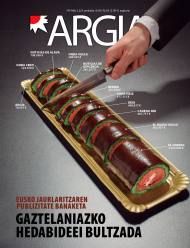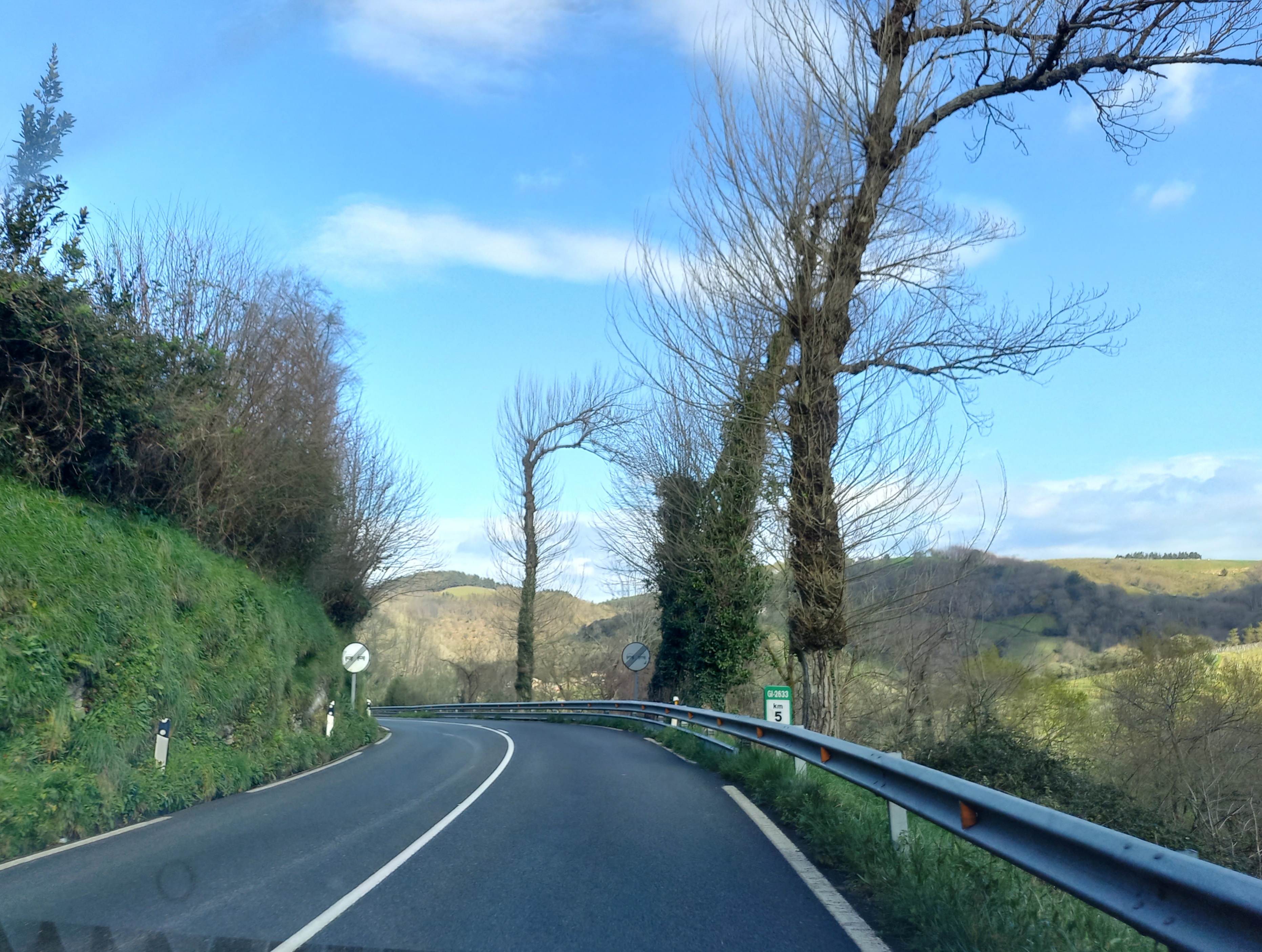The terrible future of Syria
About half a million deaths, millions of displaced persons and countless information manipulations have left the hybrid wars in Syria. External factors explain much of what has happened in Syria. The West and its allies have made a hybrid war on Syria. However, this cannot be built from scratch, for this it requires an initiator of internal factors. Three internal factors played against Syria.
The first one is long-lasting. Although the Syrian Arab Republic is formally non-confessional, in practice it operates as a diverse and highly tolerant confessional State. The problem is that a minority of Sunnis (about 20 per cent of the population) supports the confession of the state as a Sunni Muslim. To this end, in the second half of the twentieth century, the Muslim Brothers made two uprisings and in 2011 they achieved the third thanks to the other two factors.
Most of the 2011 protests were sectoral in nature and not regime change. But soon the Muslim Brotherhood and, in general, radical Islamism coopted them and used them for rebellion. The West, Turkey and the monarchies of the Persian Gulf quickly armed and financially supported several groups. Since then, many of those involved in the protests have gradually been defending the Syrian Arab Republic.
The second factor is directly related to the neoliberal measures taken by the Syrian Government at the beginning of the twenty-first century, beginning to distance itself from the socializing economy it had had until then. The country was weakened and isolated in the Middle East, due to the hegemony gained by Israel and the United States. The Americans included him on the axis of Evil and, as General Wesley Clark explained in his speeches in 2007, what happened to Syria could happen at any time. Then, thanks to the documents filtered by Wikileaks, we know that in 2006 the United States was planning a regime change in Syria. It is not known whether the main thrust of the neoliberal measures taken by Syria with the support of the World Bank was the desire to confront international isolation or the political conviction to change the economy. In any case, these measures generated socioeconomic and political discontent when the third factor appeared. When the Syrian State withdrew large amounts of aid for agricultural production, a severe drought began in 2007 and lasted for ten years. One of the pillars of the Syrian economy is the primary sector, which accounts for 20 per cent of Gross Domestic Product (GDP) and the backbone of exports.
Most of the 2011 protests were sectoral in nature and not regime change. But soon the Muslim Brotherhood and, in general, radical Islamism coopted them and used them for rebellion. The West, Turkey and the monarchies of the Persian Gulf quickly armed and financially supported several groups. Since then, many of those who participated in the protests have gradually been defending the Syrian Arab Republic through, among others, a government of concentration formed by the government and the opposition.
In the short term, Syria is going to win the war, but in the long term a kind of reinforcement of the factors that facilitated the crisis can be envisaged. The money that will be provided by the country ' s allies for reconstruction will lead to an increase in external debt, which will damage sovereignty. Moreover, the lack of funding will prevent the Administration from reaching all locations to undertake reconstruction work. Since the Syrian State is not going to recover in the short term the capacity it had before the crisis, it has to leave the space for private initiative to accelerate the reconstruction and restoration of services. Finally, although the Islamist extremists have not achieved their goals, they will be more prepared for the next battle, thanks, among other things, to their relationship and collaboration with the West, Turkey and the monarchies of the Persian Gulf.
Bidali zure iritzi artikuluak iritzia@argia.eus helbide elektronikora
ARGIAk ez du zertan bat etorri artikuluen edukiarekin. Idatzien gehienezko luzera 4.500 karakterekoa da (espazioak barne). Idazkera aldetik gutxieneko zuzentasun bat beharrezkoa da: batetik, ARGIAk ezin du hartu zuzenketa sakona egiteko lanik; bestetik, egitekotan edukia nahi gabe aldatzeko arriskua dago. ARGIAk azaleko zuzenketak edo moldaketak egingo dizkie artikuluei, behar izanez gero.
Punto Bobo liburuaren irakurketan murgilduta, Itxaso Martin Zapirain egilearen Eromena, Azpimemoria eta Isiltasunak Idazten ikerketa lanean sentitu nuen egiazkotasun eta maila etikoarekin egin dut berriz ere topo. Eta hortaz, hara bueltatu. “Oihu izateko jaio zen isiltasun... [+]
Dirudienez, Euskal Herrian migrazioa arazo bilakatu da azken bi hamarkadetan. Atzerritarrez josi omen dira gure lurrak. Gure kultura arriskuan omen dago fenomeno “berri” horren ondorio. Lapurretak, bortxaketak, liskarrak… Bizikidetza arazo horiek guztiak... [+]
Azken hamarkadetan euskararen biziberritzeak duen erronka handienetakoa, euskararen ezagutzaren unibertsalizazioarekin batera, erabilerarena da. Askotan, gazteen euskararen erabileran jarri ohi dugu fokua, baita euskararen erabilerak izan duen eta izan dezakeen bilakaeraren... [+]
Gaur buruko minez iritsi naiz etxera. Ostiral iluntze hotz bat da; ez du euririk ari, baina haizeak bota ditu lurrera bi kontainer eta korapilatu dit ilea. 23:39 dio telefonoak. Lagunekin afaldu dut gure ostiraleroko tabernan. Barre asko-asko egin dugu, eta bihotza bete-beteta... [+]
Goizean jaiki orduko hasten dira desegokitasunak. Beharbada lotarako erabili duzun lastaira ere ez zen egokiena. Baina, ezin ba idatzi desegoki sentiarazten nauten guztiez. Horregatik, udaberriko ekinozioa –egunaren eta gauaren arteko oreka– dela eta, oraindik ere,... [+]
Ez da gauza berria politikari profesionalak gizarteko arazoak estaltzeko ahaleginetan ibiltzea. Azkenaldian Denis Itxaso -EAEko Etxebizitza sailburua- entzun dugu etxegabetzeei garrantzia kenduz eta aditzera emanez gurean bazterreko fenomenoa direla; eta Begoña Alfaro... [+]
Antropozentrismoaren aldaera traketsena eurozentrismoa izan zen. Europako mendebaldea, geografikoki, Kontinente Euroasiarraren penintsula txiki bat besterik ez da, baina lau mende luzez gertaera demografiko, teknologiko eta ideologiko batzuk zirela medio, bazter horretako... [+]
Badakizuenok badakizue, beste gauza asko bezala, euskararen aldeko borrokan ere politikoek, eragile batzuek eta hedabideek beraien antzezlana saldu nahi digutela, benetakoa balitz bezala.
Lehen urtean pozik jaso nuen, "Euskaraldi" hau. Zer edo zer zen, ezer ez zegoela... [+]
Euskarak, mendez mende, zapalkuntza sistematikoa jasan du, eta oraindik ere borrokan dabil egunerokoan bere leku duina aldarrikatzeko. Hizkuntza baten desagerpena ez da inoiz berez gertatzen; planifikazio politiko eta sozialak eragiten du zuzenean. Euskaldunoi ukatu egin izan... [+]
Oldarraldia ari du EAEko administrazioa euskalduntzeko erabakien aurka, berriz ere, enegarren aldiz. Oraingoan berrikuntza eta guzti, espainiar epaitegiak eta alderdi eta sindikatu antieuskaldunak elkarlanean ari baitira. Ez dira izan akats tekniko-juridikoak zuzentzeko asmoz... [+]
Igande gaua. Umearen gelako atea itxi du, ez guztiz. Ordenagailu aurrean esertzeko momentua atzeratu nahi du. Ordu asko aurretik. Zazpietan jaiki da, eta, bihar ere, astelehena, hala jaikiko da. Pentsatu gabe ekiten badio, lortu dezake gauak pisu existentzialik ez izatea. Akats... [+]
Naomiren etxeko eskailerak igotzen ari dela datorkion usainak egiten dio memorian tiro. "Ez da sen ona, memoriaren eta emozioaren arteko lotura da. Baldintzapen klasikoa", pentsatzen du Peterrek bere golkorako Intermezzo-n, Sally Rooney irlandarraren azken eleberrian... [+]
Joan den urte hondarrean atera da L'affaire Ange Soleil, le dépeceur d'Aubervilliers (Ange Soleil afera, Aubervilliers-ko puskatzailea) eleberria, Christelle Lozère-k idatzia. Lozère da artearen historiako irakasle bakarra Antilletako... [+]
Aspaldi pertsona oso zatar bat ezagutu nuen, urrun izatea komeni den pertsona horietako bat. Bere genero bereko pertsonengana zuzentzeko, gizonezkoengana, “bro” hitza erabili ohi zuen. Edozein zapaltzeko prest zegoen, bere helburuak lortzeko. Garai hartatik hitz... [+]
2020. urteko udaberrian lorategigintzak eta ortugintzak hartutako balioa gogoan, aisialdi aktibitate eta ingurune naturalarekin lotura gisa. Terraza eta etxeko loreontzietan hasitako ekintzak hiriko ortuen nekazaritzan jarraitu du, behin itxialdia bareturik. Historian zehar... [+]


















